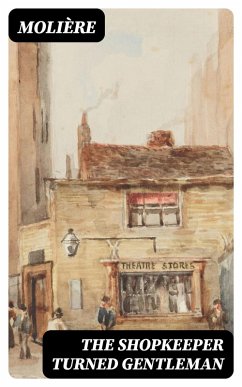In "The Shopkeeper Turned Gentleman," Molière crafts a brilliant comedy that satirizes social pretensions and the absurdities of class ambition. The play unfolds the story of Monsieur Jourdain, a bourgeois shopkeeper who aspires to ascend the social ladder by adopting the manners of the nobility. Molière employs sharp wit and intricate dialogue, interspersed with farcical elements, to expose the folly of those who seek to reinvent themselves without the requisite understanding of the culture they wish to join. The work is steeped in the rich context of 17th-century France, where the rise of the bourgeois class was met with both admiration and ridicule, illustrating the tensions between social mobility and established aristocratic norms. Molière, born Jean-Baptiste Poquelin in 1622, was a pioneering figure in French theatre known for his incisive critiques of contemporary society. His own experiences in the world of theater and his observations of social dynamics profoundly influenced his writing. "The Shopkeeper Turned Gentleman" reflects Molière's disdain for the superficiality of social climbers, likely inspired by his encounters with the complexities of class distinctions in his own life. This timeless comedy is highly recommended for readers interested in the intersection of humor and social commentary. Molière's masterful observation of human folly and desire for acceptance makes this work resonate even today, inviting reflection on our own societal constructs and the masks we wear. Dive into this delightful narrative and relish Molière's enduring wit and wisdom.
Dieser Download kann aus rechtlichen Gründen nur mit Rechnungsadresse in A, B, BG, CY, CZ, D, DK, EW, E, FIN, F, GR, H, IRL, I, LT, L, LR, M, NL, PL, P, R, S, SLO, SK ausgeliefert werden.









